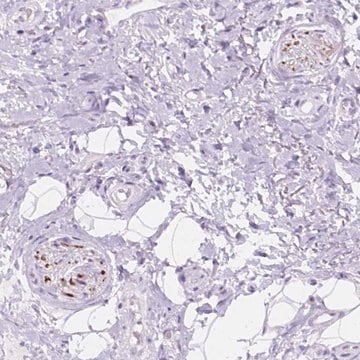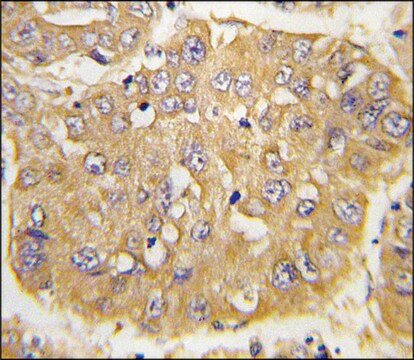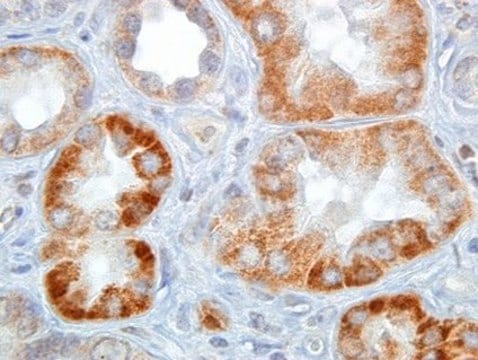MABC539
Anti-SFRP2 Antibody, clone 80.8.6, azide free
clone 80.8.6, from mouse
Synonim(y):
Secreted frizzled-related protein 2, FRP-2, sFRP-2, Secreted apoptosis-related protein 1, SARP-1
About This Item
Polecane produkty
pochodzenie biologiczne
mouse
Poziom jakości
forma przeciwciała
purified antibody
rodzaj przeciwciała
primary antibodies
klon
80.8.6, monoclonal
reaktywność gatunkowa
human
metody
immunohistochemistry: suitable
inhibition assay: suitable
izotyp
IgG2aκ
numer dostępu NCBI
numer dostępu UniProt
Warunki transportu
wet ice
docelowa modyfikacja potranslacyjna
unmodified
informacje o genach
human ... SFRP2(6423)
Opis ogólny
Immunogen
Zastosowanie
Jakość
Imunnohistochemistry Analysis: A 1:500 dilution of this antibody detected SFRP2 in human prostate and human breast cancer tissue.
Opis wartości docelowych
Postać fizyczna
Inne uwagi
Not finding the right product?
Try our Narzędzie selektora produktów.
Kod klasy składowania
12 - Non Combustible Liquids
Klasa zagrożenia wodnego (WGK)
WGK 2
Temperatura zapłonu (°F)
Not applicable
Temperatura zapłonu (°C)
Not applicable
Certyfikaty analizy (CoA)
Poszukaj Certyfikaty analizy (CoA), wpisując numer partii/serii produktów. Numery serii i partii można znaleźć na etykiecie produktu po słowach „seria” lub „partia”.
Masz już ten produkt?
Dokumenty związane z niedawno zakupionymi produktami zostały zamieszczone w Bibliotece dokumentów.
Nasz zespół naukowców ma doświadczenie we wszystkich obszarach badań, w tym w naukach przyrodniczych, materiałoznawstwie, syntezie chemicznej, chromatografii, analityce i wielu innych dziedzinach.
Skontaktuj się z zespołem ds. pomocy technicznej







